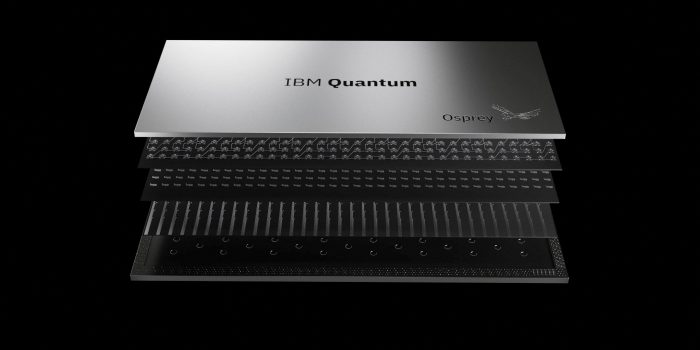IBM has constructed the world’s largest quantum computer. It’s called Osprey, and it has 433 qubits or quantum bits.
That’s more than three times the number of cubits as the Eagle chip, which IBM announced last November. IBM stated that it built on the 127-cubit Eagle’s design by retaining qubits on a single plane via multi-level wiring.
“Unlike classical bits, which have to be in a state of either one or zero, qubits can exist in a complex mix of both, tapping into the fundamental quantum nature of matter at subatomic levels,” IBM said in a press release.

“As a result, quantum computers offer the possibility of vastly increased computing power that can be used to tackle calculations of much greater complexity in fields such as artificial intelligence and the design of new materials for drug discovery and energy research.”
In theory, quantum computers can solve problems that traditional computers would take ages to complete. As a result, the qubit count of IBM’s quantum computers has gradually increased over time. The company released the first quantum computer to the public in 2016—a device with five qubits, each a superconducting circuit cooled to near-absolute-zero temperatures of around 20 milliKelvin. The company unveiled the 27-qubit Falcon in 2019, the 65-qubit Hummingbird in 2020, and the 127-qubit Eagle in 2021.

“Each one of the improvements we used led to a little improvement in speed, but once we lost all these bottlenecks, we saw a major improvement in speed,” says Oliver Dial, IBM Quantum’s chief hardware architect.
The company is ramping up its quantum computing research to produce a system with 4000-plus qubits by 2025. Its roadmap is currently on track. Next is the Condor chip, a 1,121-cubit device that IBM intends to release next year. It is on its way to becoming the world’s largest general-purpose quantum processor.

IBM is also planning to add error mitigation mechanisms in the cloud software for its quantum computers, allowing them to trade speed for more accurate results.
IBM also announced a collaboration with the communications technology company Vodafone to develop post-quantum cryptography that will withstand future quantum computers that can quickly break present cryptography.
“We’re working on crypto-agility, the ability to move between cryptographic schemes to acknowledge how cryptography constantly changes and advances,” Dial says.


